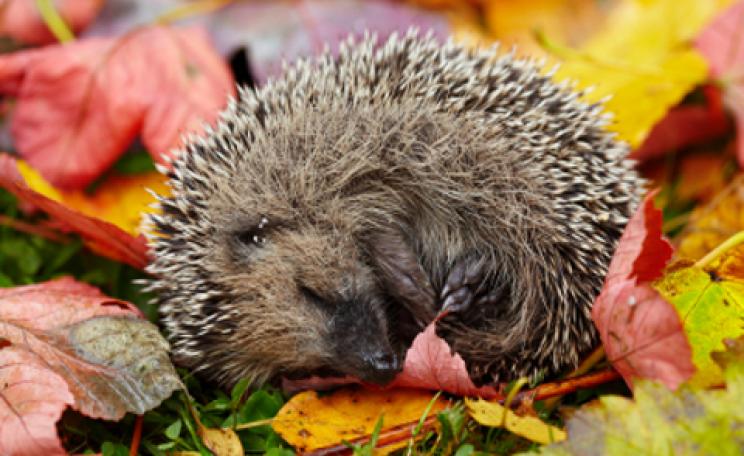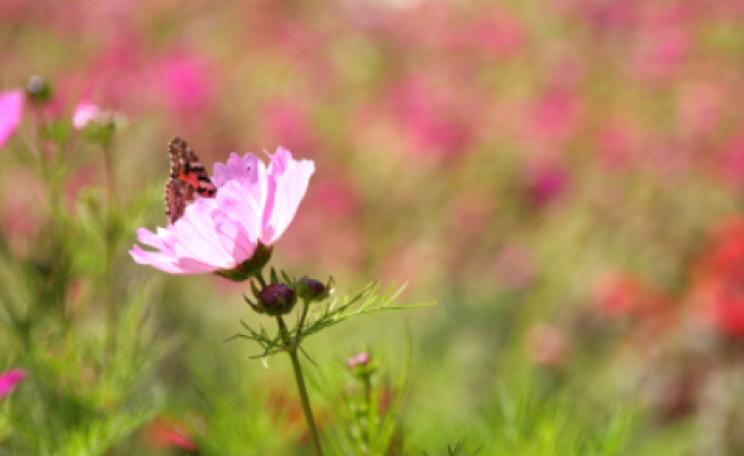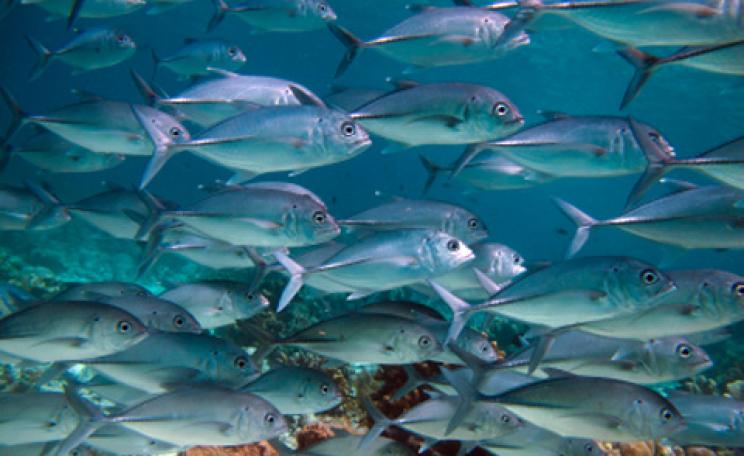Skomer Island: 'you can see the mainland but feel you're on the edge of the world'
For such a small island, Skomer is a real big hitter.
It is a National Nature Reserve, a Site of Special Scientific Interest and a European Special Protection Area. The remains of prehistoric houses, as well as a stone circle and standing stone, have resulted in much of this tiny speck of rock off the Pembrokeshire coast - two miles long and a mile and a half wide - being designated an Ancient Monument, while the clear blue-green waters around it are a Marine Nature Reserve.
Cut off from the mainland by rising seas at the last Ice Age, like so many islands in the world it is Skomer's insularity that has kept its ecosystems intact and flourishing. Famed for its thousands of seabirds, it is a nature-lover's paradise, one to which visitors - feathered and otherwise - flock from far and wide.
But instead of catching the boat home at the end of the day, a few fortunate souls every week get to wave it off instead. Becoming one of Skomer's volunteer wardens is the ideal holiday for those who like to mix a little conservation with their relaxation.
Getting there
Skomer is reached by boat from Martin's Haven cove, 14 miles from Haverfordwest. The 20-minute journey through the tidal currents of Jack Sound can be choppy, with northerly winds and bad weather meaning cancelled crossings - sometimes for days at a time. In good conditions the boat leaves at 10am, 11am and 12am six days a week, returning from 3pm onwards. Visitor numbers are capped at 250 a day, and dogs are forbidden.
At first glance the island seems unprepossessing, a bracken-covered hulk of high cliffs and rocky shores, but approaching there is no doubting its popularity. Bobbing in their hundreds on the water are razorbills, guillemots and puffins. Fulmars and kittiwakes slip and slide along the air currents above. A turmoil of porpoise cuts through the waves to starboard; Atlantic grey seal pups, white-furred and sounding startlingly human, call to their mothers from the rocks.
Managed by the Wildlife Trust of South and West Wales, Skomer is open to visitors from April to October. Its warden and assistant warden - Jo Milborrow and husband Dave - live on the island for nine months of the year, looking after visitors, surveying and monitoring wildlife populations, and maintaining the island's accommodation, information and research centre, office and library.
Their jobs are made immeasurably easier by the help of their volunteer wardens, members of the public with an interest in nature and conservation, who fill six weekly positions during peak season, and four during September and October.
'Absolutely anybody can volunteer, and we get a diverse range of people, all thrown together through a love of wildlife and conservation,' says warden Jo Milborrow. 'There's a real team atmosphere, and it helps us out a great deal - we'd be lost without our volunteers.'
The May to July places book up quickly, as most volunteers are keen to time their stay with that of the island's most famous residents: the puffins.
Bird life
In June and July, while they're feeding their young, Skomer is home to an estimated 6,000 breeding pairs of these worried-looking clowns, bustling across footpaths carrying food to their burrows. Seals bask on the Garland Stone, off the north coast of the island. Later in the year, when the waves crash white against the island's rocky shores and the wind is a constant presence, the towering cliff face known as The Wick, on the south of the island, becomes a stark place, but in summer it is alive with seabirds.
Burrow-nesting Manx shearwaters feed their chicks at night to avoid predation by the great black-backed gull, the eerie cries of an estimated 120,000 breeding pairs filling the sky. Cameras strategically inserted into these and the puffins' burrows give amazing insight into life underground.
Each Saturday brings a new batch of volunteers to Skomer; some have been returning for years. Davina Tolhurst, 42, a project manager from Crawley, near Gatwick, first visited Skomer two years ago, and fell in love. This is her first time volunteering, but she plans to come back next year.
The rewards
'It's a wild, beautiful place - you can see the mainland but feel you're on the edge of the world,' she says. 'People think volunteering is simply working for free, but to be here enjoying the island at times other people can't - at night when there's a full moon and the Manx shearwaters are out - is more than I could ever be paid.'
The volunteer wardens' main duty is to help with the day visitors, manning telescopes and providing information, but if the weather keeps the boat on the mainland there is still plenty to do. Bracken clearance is vital to prevent the network of meandering paths from becoming choked with the dense fern banks that carpet the island.
The walkways are littered with the bones of unfortunate shearwaters, as well as Skomer voles, unique to the island, a favourite of short-eared owls with chicks to feed.
Conservation work depends on the time of year, but includes performing bird, cetacean and vegetation studies, whether counting whales from a clifftop or assessing vegetation growth in an area from which rabbits have been excluded. Other tasks include repairing boardwalks and bird hives, painting buildings, library cataloguing and helping out in the warden's office.
Volunteers get the run of Skomer after visiting hours. Certain research or conservation areas aren't open to the public, but an interest in a particular facet of conservation work can be accommodated. Areas such as The Neck - an almost-island connected to Skomer by a narrow isthmus - are the perfect place to help the seal researchers check for newborn pups.
Accommodation
Skomer's few buildings were renovated in 2008, a sensitive project that won The Wildlife Trust of South & West Wale a RICS sustainability award. The derelict stone farm at the centre of the island was turned into five bedrooms, a kitchen and lounge-dining room for short-stay visitors, and the cowsheds were rebuilt to provide volunteer and assistant wardens with better accommodation. (Agriculture on Skomer stopped in 1950, the farm dating back to 1840, though several Iron Age settlements suggest the island was inhabited as early as 3000BC.)
Volunteers occupy three rooms; there is a kitchen with gas cooking and refrigeration, but no central heating or washer-drier. There is a compost toilet, UV-treated well water, and a PV solar array to provide electricity, lighting and hot water for showers. Island living offers valuable lessons about the conservation of limited resources.
Duvets and pillows are provided; all you need to bring is an undersheet and pillow cases, and either a duvet cover or sleeping bag. Other essentials include sturdy footwear, warm clothing, waterproofs and food for the week, as well as a day or two beyond that, in case bad weather prevents the boat crossing.
'It's life-changing, so be prepared not to want to leave,' says Davina. 'If it's a stormy or foggy night it's surreal, like a blurred watercolour; the only lights are the tankers in the bay, and sometimes just the stars. If the boat can't make it across to pick me up at the end of the week then I'll be happy.'
More information
Bookings for 2010 open on 5 October. Visit www.welshwildlife.org for an online booking form, but please contact Island Bookings on 01239 621600/621212 prior to sending it in to check up-to-date vacancies and make a provisional booking.
----
Other conservation holidays
British Trust for Conservation Volunteers
Wildlife surveying, sand dune and heritage trail maintenance, hedge-laying and ancient woodland management. From £40 to £250 depending on length of stay and accommodation.
01302 388883
www2.btcv.org.uk/display/volunteer
Waterway Recovery Group
WRG's "Canal Camps" offer the chance to contribute to restoring derelict canals to life, which can help contribute to their use for freight transport and get more trucks off the road (see Ecologist article here). From £49 for a week's food and accommodation.
01494 783453
www.wrg.org.uk
Trees for Life
Help restore the Caledonian Forest with a week's tree-planting, deer fencing and removal of non-indigenous species. 700,000 trees have already been planted. From £50 to £120 per week.
0845 6027386
www.treesforlife.org.uk/tfl.ww.html
RSPB
Volunteer at one of the many RSPB reserves around the UK, from protecting ospreys in the Glaslyn valley, Wales, to seabird conservation on Rathlin Island, Northern Ireland, to becoming a warden in Dungeness, Kent. Accommodation provided, bring your own food.
01767 680551
www.rspb.org.uk/volunteering/opportunities/index.asp
National Trust Working Holidays
From dry-stone walling and organic gardening to surveying moorland and herding goats, the National Trust runs 400 working holidays a year. From £60 a week including food and hostel-type accommodation.
0844 800 3099
www.nationaltrust.org.uk/main/w-trust/w-volunteering/w-workingholidays.htm
----
See also:







